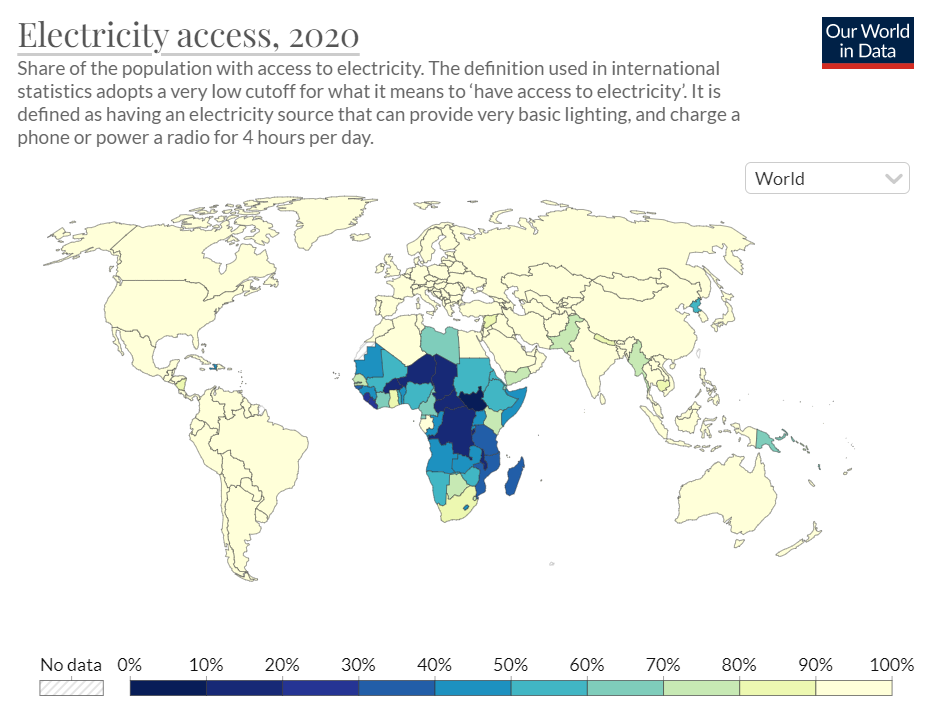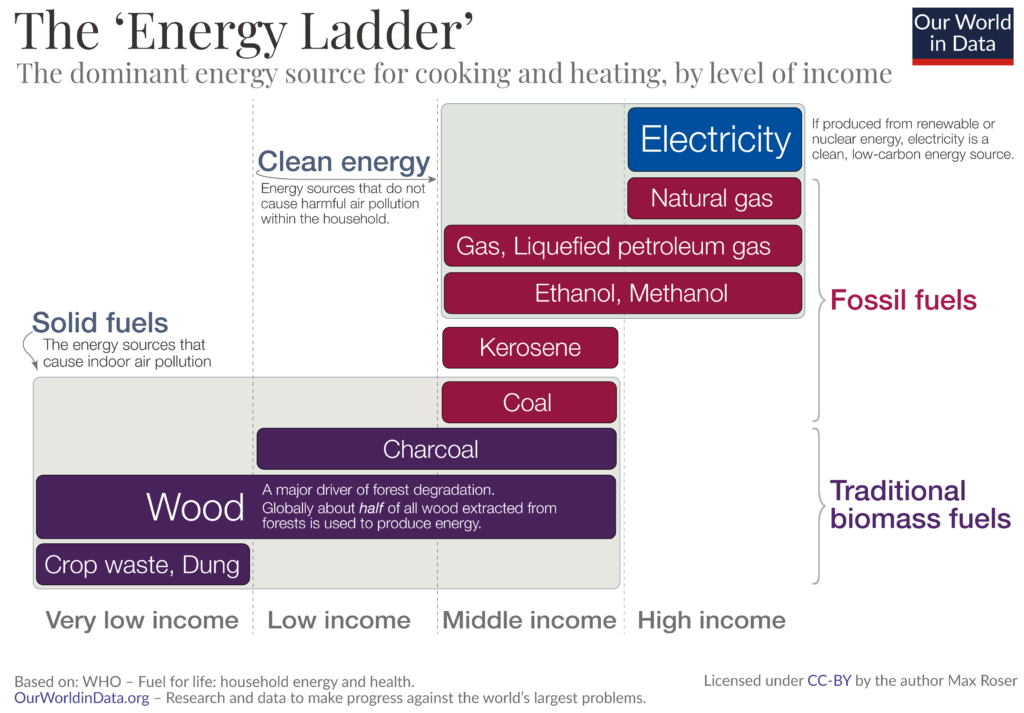In the same way we have energy in our bodies to help guide us through the day, as humans, we rely on other, external energy sources to help us meet our needs. Energy is something we all use each day and access to electricity, energy to heat our homes, and a reliable fuel source to prepare our food are examples of ways that energy helps us meet our basic needs. But for millions of people, energy is an unattainable resource that leaves their needs unfulfilled.
Access to Electricity
According to Our World in Data, approximately 940 million people, or 13% of our global population, do not have access to electricity. The majority of these people live in African or Asian countries, and although progress has been made through the past few decades to bring access to these areas, there is still much to do to ensure global access to electricity.
An interactive map on the Our World in Data website outlines the progress made from 1990 – 2020.
Access to Safe Cooking Fuels
Across the world, people rely on various types of fuel to cook their meals. Cooking fuels can be divided into categories, based on levels of emissions when burned – and modern fuels are designated as “clean” when they have low-level polluting emissions. Examples of clean fuels include electricity, natural gas, and ethanol, among others. According to a report by the International Energy Agency (IEA), more than 2.5 billion people lack access to clean cooking fuels, forcing them to rely on less desirable alternatives.
Alternative cooking fuels that don’t burn as clean as modern fuels include charcoal, wood, crop waste, or even dung. Those with very low-to-low income levels often use these alternatives because they are more affordable and accessible options. Our World in Data assembled a graphic to show the direct correlation between income levels and access to cleaner cooking fuels – noted as the “Energy Ladder.”
An unfortunate truth about utilizing less clean cooking fuels is an increase in indoor air pollution in homes. The IEA also reports that nearly 2.5 million deaths are attributed to household air pollution, which often comes directly from cooking smoke.
Bringing it Home
Although extreme examples of energy insecurity take place overseas due to lack of access, there are still millions of Americans that struggle to meet their energy needs as well. Energy Poverty in the U.S. remains a domestic concern that threatens the safety and well-being of our neighbors.
Access to clean, affordable, abundant energy sources is vital – both domestically and globally – to ensure a successful future for nearly 8 billion people across the world.


